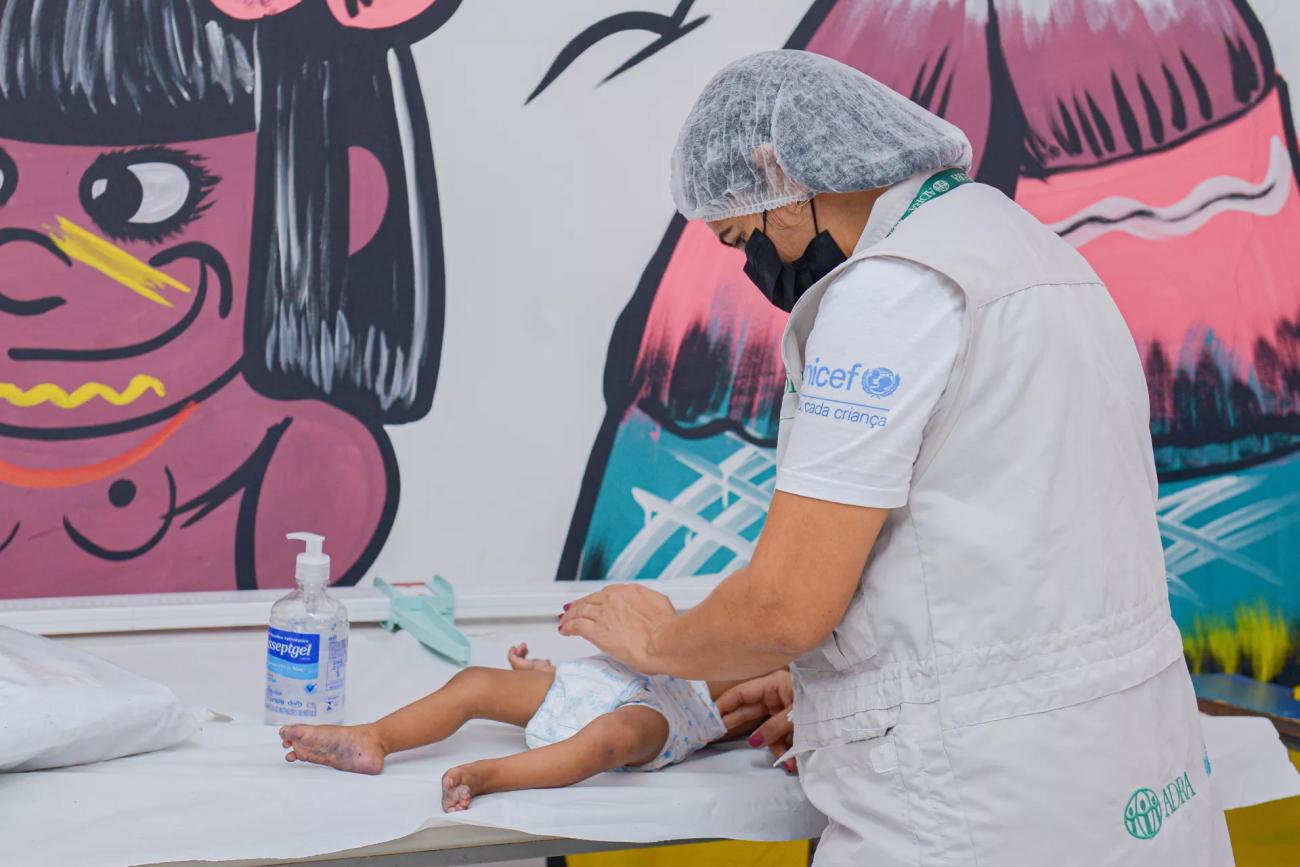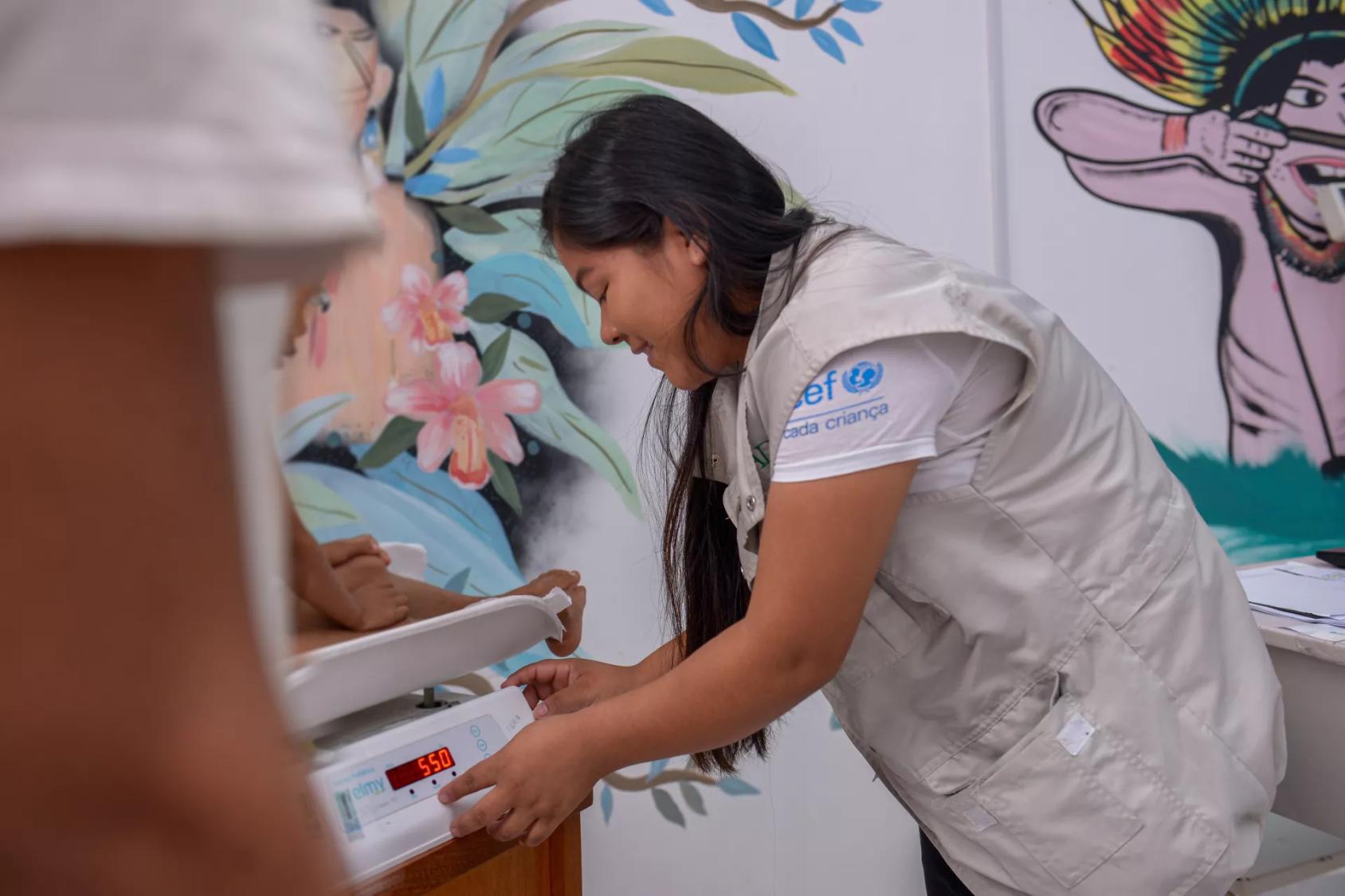A Better Future for Brazil’s Indigenous Peoples

Rosmery is an indigenous woman of the Warao ethnicity who, due to the crisis in Venezuela, migrated to Brazil with her family, in search of a better life. She is one of more than 11,000 indigenous persons with a similar story. “My country began to suffer a very serious crisis, which caused many indigenous people to leave their homes and everything behind, in many cases leaving entire communities empty, and I also had to migrate,” she says.
At 44 years old, she currently lives with her parents and one of her three children in the Warao Janoko community, located in the municipality of Cantá, in Roraima state. Like so many other refugee and migrant women, Rosmery took on the responsibility of caring for the family members who live with her. To do this, she participated in courses in Portuguese, baking, gastronomy and breadmaking, being a kitchen assistant, offered by projects implemented by different organizations, including UN Women, UN Refugee Agency (UNHCR), and UN Population Fund (UNFPA).
After two years of planning and organizing finances, Rosmery's small business, a bakery, finally opened doors this year. “My main goal is to make my community, the Warao Janoko community, develop and be attractive to tourists. We started with this family bakery, and soon it will support other development opportunities,” she explains.
Safeguarding Indigenous Health
Casai, located in the capital of Roraima, is where people with the most severe health conditions living in the Yanomami Indigenous Territory (TIY) are taken when they cannot be treated there. Thanks to the efforts of the Federal Government and with the support of the United Nations System, Yanomami indigenous deaths decreased by 33 per cent in the first quarter of 2024 compared to the same period last year, when a public health emergency was declared in the indigenous territory.
Maria Audaly, a Venezuelan refugee, is one of the health monitors responsible for ensuring the recovery of Yanomami, Ike’uanas, and Sanumã boys and girls suffering from malnutrition at the Nutritional Recovery Center of the Yanomami Indigenous Health House (Casai) in Boa Vista. “Here, we’ve received children so weak that they didn’t even have the strength to cry. It was an extreme situation that I had never witnessed since I started working in healthcare when I arrived in Brazil in 2018,” says Maria.
Maria is not alone.
The harmony between Nara Martins, 25 years old, and her little patients is so strong that no one would suspect they don’t speak the same language. Communication happens through affection, exchange of looks, hugs, and smiles. The young nutritionist, who is indigenous, uses other forms of communication to calm the Yanomami children who come from their lands, hundreds of kilometers away, to be treated for malnutrition in Boa Vista, Roraima.

“As an indigenous woman of the Macuxi ethnicity, I feel very privileged to practice my profession to care for people like me. I feel it is my mission to care for these little ones because I see them as if they were my own people. This is my battle,” says Nara, who, with the support of the UN Children’s Fund (UNICEF), is combating child malnutrition at the Casai.
Territorial Protection
In addition to providing direct support to indigenous communities, the UN System, through the UN Office for Drugs and Crime, is working with the Federal Government to strengthen mechanisms for monitoring, early warnings, and response to environmental crimes in the context of illegal gold mining and indigenous territorial protection. Illegal mining has severe environmental, social, and economic consequences, compromising biodiversity and ecosystems and exposing vulnerable populations to security and health risks.
These and other actions are part of the United Nations' commitment to supporting and protecting indigenous peoples and their territories in Brazil, enshrined in the 2023-2027 Cooperation Framework. Promoting their participation in national decision-making processes and provide technical assistance to the government to mainstream gender, race, and ethnicity into public policies, plans, and budgets, the UN in Brazil stays steadfast in ensuring no one is left behind in Brazil’s path to a better a future.

























